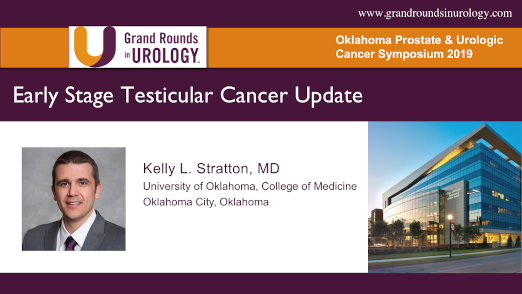Management of Recurrent Prostate Cancer After Focal Therapy
Kelly L. Stratton, MD, Assistant Professor of Urologic Oncology in the University of Oklahoma (OU) Department of Urology in Oklahoma City rationalizes the implementation of Focal Therapy despite chances of recurrence and discusses salvage therapy. He characterizes Focal Therapy as an option between radical treatment and active surveillance, which preserves quality of life. The perfect candidate is hard to achieve, according to Dr. Stratton, due to the rarity of a patient with intermediate-risk cancer, lesion localization, intact erections, and minimal urinary tract symptoms; however, he states that the ideal candidate doesn’t have to be perfect. Dr. Stratton overviews the two main types of recurrence: in-field recurrence and contralateral recurrence, through patient examples, which display how recurrence may occur post Focal Therapy and the abilities of high intensity focused ultrasound, prostatectomy, and cryoablation as salvage therapies. A multicentre study of five year outcomes post Focal Therapy found a failure free survival rate of 88% with 25% of patients having had undergone retreatment, data that Dr. Stratton states to suggest a need for providers to openly discuss the chances of repeat focal therapy against having a more aggressive treatment. He reviews data that supports implementation of Focal Therapy and displays the impact of different salvage therapies. Dr. Stratton concludes by stating that Focal Therapy’s success requires adherence to the principles of active surveillance, follow-up biopsies, and a willingness to provide definitive local therapy when focal treatment fails.
Read More

